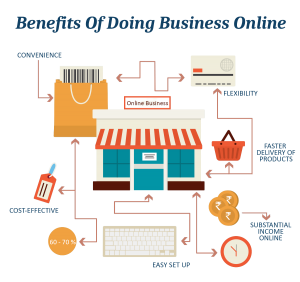
Business blogging: Is your company publishing one regularly – or not yet?
According to InsideView:
33% of B2B companies use blogs.
If your company is one of the 33% of that is publishing business blogs, then you can give your team a pat on the back. You are ahead of those who are not.
To you, the 67% that do not have business blogging as part of your marketing communication tool, you are missing a lot! See the benefits (below) that come with blogging that those that do are already reaping.
I was one of the 67%.
It took me a year or so to include business blogging part of our company’s marketing tools.
I am going to start this article as to why it took me that long.
To those of you who want to know the benefits and the planning tips for your business, go ahead and scroll down the next sections.
Business Blogging: Personal Journey
No one will read it. No one will share it. So I thought.
There are many topics about social media marketing already, why add to the content glut. Right!
However, guess what?! My “Aha! moment”…)
If I (you can insert your business name here) do not produce business blogs, where will my potential customers get the information they are searching for in social media and Google? From businesses that publish blog articles. THAT includes MY (your)competitors that post blogs.
Of course, I know I can’t control which blog people visit, but I can control the contents that I publish so people would read it, or much less share it.
Having said that, my immediate business blogging goal, and it continues to be the primary (goal), is to publish informative content.
I write and publish blog articles that I won’t’ be embarrassed to forward to somebody.
When I published my first article, I was struggling to put together 250-300 words.
But you know writing always begins with just ONE word. 
Remember one of my concerns at the beginning of this section? See my top 10 most shared social media marketing articles here according to the social media community.
What our company blog is NOT:
- It is not 100% perfect. I did not start out as an expert blogger (and still am not); nor am I a technical genius. Admittedly, I tend to get trapped in making sure that EVERYTHING is shiny because something always isn’t right. THAT includes images, formatting, fonts, font color, and many details. Also, my two grammar checkers aren’t perfect either neither am I.
- I do not write weekly, but I write content regularly. Well,
Once a month is all I can do. I am not as prolific as a writer as many of you are. I go for depth instead of breadth. You can write as often as you like. You can write short or long content. There is NO hard and fast rule to blogging. I don’t believe there is. It all depends on your business objectives and time that you have available.
Just start writing.
Business Blogging Benefits You’re Missing
These are what companies that regularly publish blogs are reaping and what you aren’t if you are not publishing articles.
Inbound traffic to YOUR website, NOT your competitors
Company Blogging Benefit 1
Companies that blog have 97% more inbound links, according to Hubspot.
Using HomeZada, as an example, they understand that social media marketing is a powerful business marketing tool if harnessed well to get their clients and potential customers know about their digital home management software.
 study about web referral traffic for the first year.
study about web referral traffic for the first year.
For 2016, our social media efforts contributed 48% web traffic for one of their web properties – and the remainder is a combination of other channels. If we combine all their web properties, social media referral traffic is third to paid search and organic search.
Our social media success can be attributed to their producing hundreds of useful and helpful blog contents for their product users.
Now, wait a minute, don’t go running and start publishing your business blog yet.
Check the planning tips below to organize your team.
Whatever content you produce, make sure the content is helpful and relevant to your audience. An overly promotional blog is NOT relevant to your audience.
Give it your best. Research on the topic. Experience is good, but it is also good to do some research to back it up. Including data won’t make it bad either.
This web traffic thing is cumulative. Be relentlessly consistent.
Business blogs can establish you as an expert in your niche
Company Blogging Benefit 2
A 2015 survey conducted by affilinet states that:
Bloggers ranked third as the most trusted source of information, behind friends and family…
…yes you can do that without tooting your horn that you ARE an expert.
While Hubspot says:
Blogs have been rated as the 5th most trusted source for accurate online information.
If you could do just ONE thing online to market your business, make it business blogging. A relevant business blog is the heart of everything you do to establish your company as the expert.
Your product may not be sexy so what could you write about it? As an example, DCSC Inc, a shipping and supply chain solution to businesses. Not hot, right? Ok, read this material handling and shipping article written by DCSC. Isn’t THAT information helpful to businesses?
It’s worth noting that it takes time for others to recognize your expertise especially when you rely on inbound marketing. But like seeds, you’ll reap the fruit in due course.
Your business blog is a doorway to your “sales pages
Company Blogging Benefit 3
81% of U.S. online consumers trust information and advice from blogs. (Source: BlogHer)
Each time you publish a blog you are underscoring that open door for customers and potential leads to knowing more about your expertise, or your product.
It helps develop trust and eventually help you grow sales.
Once they are on your site, guide them around! *Hint* Link freely to contextual articles or pages.
Your company blog muscles up your social media profiles.
Company Blogging Benefit 4
Treat your social media profiles as your business’s publishing tools.
That’s where you share your helpful and relevant articles.
Remember I mentioned above that that’s how we helped HomeZada?
The more often you share helpful content, the stronger your brand becomes in social media.
If all you are posting in social media are your home, product or sales pages, then you are missing the “make-it-relevant-to-your-audience” part.
People do not use social media to buy from businesses.
See this report from Global Web Index? Do you see where “buying” is in this chart?
Helpful info via @globalwebindex on why people use social.
A heads up to peeps that do #socialmediaoptimization. pic.twitter.com/ubLSdaQwuD
— rubyrusine (@SocialSMktg) April 14, 2017
Way down in the bottom. That’s right.
Yes, businesses can use social media to sell, but if your posts are all about how great your product is. Then, you are doing social selling wrong.
Your company blog pages can help your social selling efforts. A LOT.
I’d venture to say this: social media is useless if you do not publish a blog. You are just wasting your time.
Blogging is a tool that could help your brand’s online visibility
Company Blogging Benefit 5
The more you blog, the more visible your business becomes.
Let’s make that clearer. The more helpful blog you publish; the more people share it with THEIR followers.
Search engine rewards companies that publish fresh content regularly
Company Blogging Benefit 6
According to Content Plus,
Websites with a blog tend to have 434% more indexed pages.
You want THAT.
Fresh content, like your blog, signals search engines that you have a web presence that is active. Regularly publishing a new blog is an invitation for bots to crawl and index it.
What about your product and “About Us” pages? Those are essential contents, but those are….OLD.
Do you like stale bread? I don’t. The search engine spiders look for fresh bread contents.
Imagine the web as a (digital) library and the search engines as its librarians and your business blog as the book. The more content you add to the library, and for the same topic, the more resources the search engine have available to offer to those seeking information that you cover online.
Business Blogging is an inexpensive marketing and communication tool.
Company Blogging Benefit 7
Blogging is an inexpensive way to increase your business’ portfolio.
It is a good marketing tool that your company could use to communicate about your business.
You can use it to:
- Promote your business
- Answer questions that your typical target audience ask
- Engage with your current and potential customers
- Offer tips and advice
What to do: Your Company Blogging Checklist
If the above convinced you that your team better get on to producing marketing blogs, here are a few things that you need to do now with your staff before publishing your business blog.
There is NO right and wrong answer to this, but these are worth considering.
- Author/s
- Who is going to be in the by-line? Is it your company leaders? Founders, Owners, Presidents and Vice Presidents
Will your marketing and sales team be involved?
Is the article piece going to be written by someone internally or are you going to outsource this?Your business blog is public. It represents your company. No matter who you decide to be your blog authors, the author/s should be able to set aside personal opinions and personal goals. Authors should focus on your company’s aims and objectives. If your corporate blogger can’t differentiate his/her opinion and goals from your business, my advice is to find someone else.
- ContentWill your content be about company news, product tips, and surveys? What different formats are you going to include in your business blogs? Do an inventory of what you already have:
- Images
- Texts
- PDF of Company/product brochures
- Video
- Whitepaper
- Podcast
- Images
Regardless of what you decide to produce, any helpful content is always always always beneficial to your audience. Also, it gets often shared if it’s that way.
You see, valuable contents that you produce are contents that keep on giving.
Bonus Tip: Include here when planning your business blogging topics, the results from your keywords research.
Your business keywords are topics that your customers are already looking for already.
Using the keywords that you already researched on is speaking the language of your audience. Your audience rarely uses the technical jargon so you can leave that elsewhere. It is not about optimizing for search engine’s sake. It is speaking your audience’s language.
- Topics
Are there topics that are OK to write about?
What topics are off limits? Is there any that is off limits?
Any proprietary information they should not release or not?
I used to publish contents for a company that’s publicly traded. Truth be told, although I was given the full rein of online marketing, it was stressful.
Why? I didn’t know what I was writing, or conversations I was participating in were OK to them. They did not have guidelines. No one had the time to create one. And, it was a publicly-traded company.
- Tone of Voice
Keep the tone casual.
It’s a blog.
It is not a technical paper.
Does your company have a personality? You can show that in your business blog.
However, even though it is conversational, one thing that authors should be made aware of is that it represents your company. You cannot just say anything you wanted to say. Hence, take note of tip #8 below.
- Content Calendar
This is essential, and even, more essential if you have several people involved in blogging for your company. It keeps everyone organized and focused.
Content calendar – can reflect topic and authors. Do you have one?
You don’t have to make this complicated. You can use Outlook, Google calendar or Excel spreadsheet to as your content calendar.
- Expected Results
What are your expected outcomes?
- Higher visibility?
- Improved customer service and satisfaction?
- Research?
- More leads?
- New Product Ideation?
How are you going to track results? What tools would you use?
- Metrics
How are you going to measure your expected results?
What is your success metric?
What will make EVERYONE happy?
- Social media shares
- Monthly visits
- New visitors
- Downloads
- Event registration
- Ticket sales
- Email sign-ups
- …and whatever is the key metric for you
All your content marketing metrics, or however you call it, should point to WHY your company is doing business blogging, in the first place.
- Rules and Limitations
This is essential to protect your business’s image. It is like future-proofing your business.
Include here things that are obvious to YOU as rules and limitations.
Because they may be obvious to you but not to everyone
You trust your online representatives, right? Well, that’s what some of the companies who had people represent them online did; only for them to resort to damage control later.
Make sure you check with your lawyer before you finalize this part.
Building Company Blog from Scratch
- Name
Decide on a that is easy to remember.
Bonus Tip:
On that note, check if the business name you selected is trademarked before you claim it as your business domain name. The domain name may not be owned by someone, but it might be trademarked by someone else.
It happened to me when I first launch my business website.
Another bonus tip for blogs:
Good URL: blog.socialsuccessmarketing.com
Also, a good URL: socialsuccessmarketing.com/blog
Bad URL: socialsucessmarketing.otherwebsite.com – this means it is hosted by another company. And it’s that company that is getting ALL the traffic and SEO benefits, not you.
If you are doing this as merely as a hobby, that bad URL structure is fine. But if you are doing this as a business then go for a self-hosted URL (the good ones)
- Content Management System
Pick the content management system (CMS) that you think would be appropriate when you company jumps into business blogging. The truth is there is no perfect CMS for companies. Speak with your team. Ask an expert.
Don’t decide based on the bells and whistles it offers. Determine what you need it for, what you want to accomplish. Then see if the tool you are considering can handle those.
Conclusion
Many companies have implemented business blogging successfully. However, there are those that have implemented it without measurable benefits. Why? Because they have not set their WHY for blogging. Alternatively, there are those who have hurt the corporate image. Why? Because they failed to include rules and limitations on what their online representatives should do.
If you love your business, add a well-planned business blogging strategy in your marketing communications kit.
Digital & Social Articles on Business 2 Community(90)
Report Post





